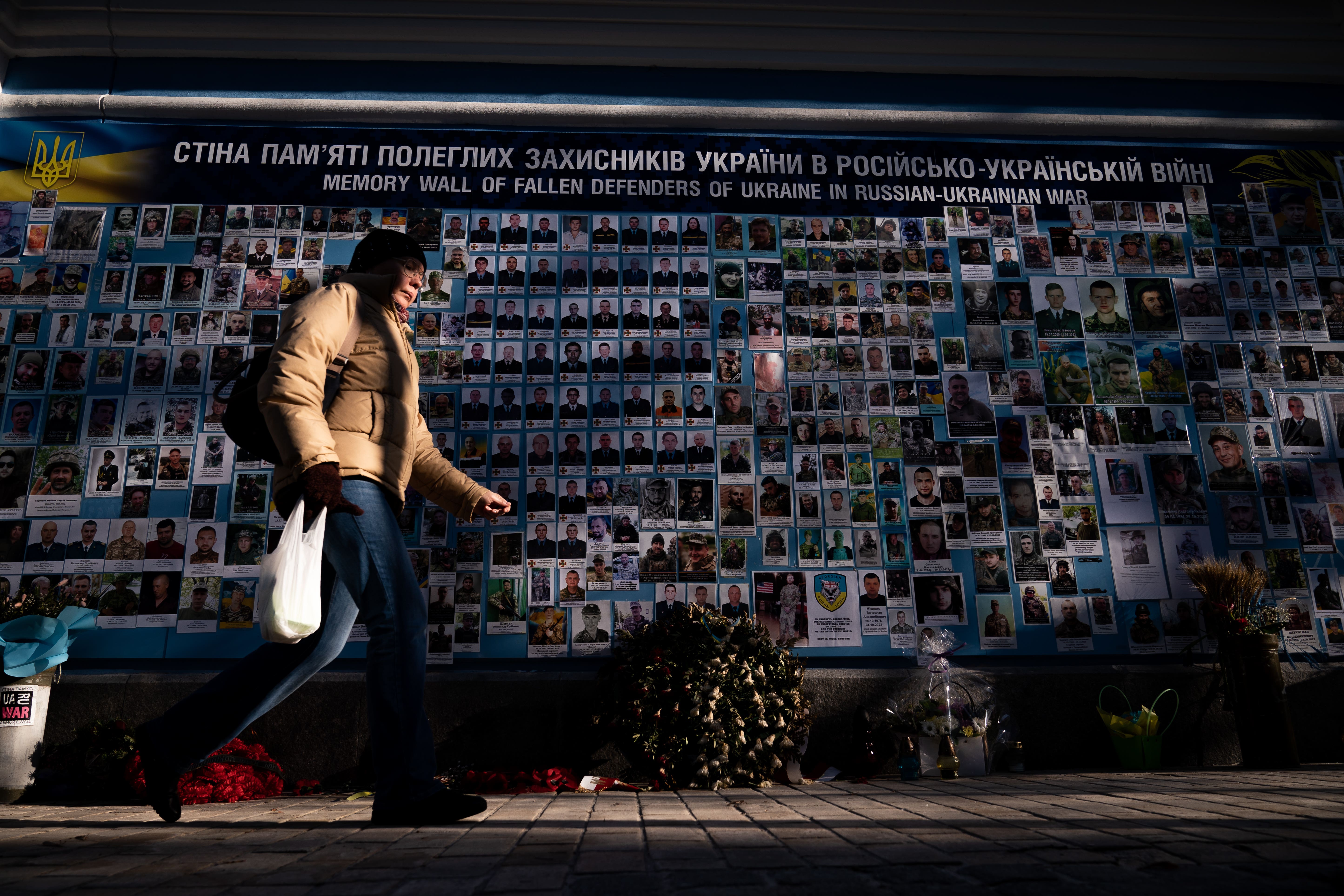Emotional and physical impact of war ‘huge’ – social worker in Ukraine
Russia launched a renewed invasion of Ukraine on February 24 last year.

Your support helps us to tell the story
From reproductive rights to climate change to Big Tech, The Independent is on the ground when the story is developing. Whether it's investigating the financials of Elon Musk's pro-Trump PAC or producing our latest documentary, 'The A Word', which shines a light on the American women fighting for reproductive rights, we know how important it is to parse out the facts from the messaging.
At such a critical moment in US history, we need reporters on the ground. Your donation allows us to keep sending journalists to speak to both sides of the story.
The Independent is trusted by Americans across the entire political spectrum. And unlike many other quality news outlets, we choose not to lock Americans out of our reporting and analysis with paywalls. We believe quality journalism should be available to everyone, paid for by those who can afford it.
Your support makes all the difference.A social worker in Ukraine has said it is difficult to imagine just how many problems people will have in future due to the ongoing war.
Oleh Kryshchenko said everyone “has their own stories” and the future will be “tough” due to the “huge” impact of the conflict.
He said 90% of people he works with have relocated from other regions and need money for rent.
Mr Kryshchenko is a social worker at Alliance Global – a charity which helps displaced LGBTQI people in partnership with Mercy Corps funded by money from the British Government
Speaking to the PA news agency in Kyiv, with the help of a translator, he said: “Every person has their own stories. So they’re calling us, we’re calling them, and it’s people all over Ukraine.”
Mr Kryshchenko added: “I can see now the impact is huge, emotionally and also physically, and it’s hard to imagine how many people we will see after the war with all kinds of damage.”
He referred to the high number of people who have been displaced and lost their homes, as well as the decline in value of Ukrainian currency.
Mercy Corps has supported local partners across Ukraine and neighbouring countries, providing urgent cash assistance, household, food and hygiene kits for winter, and information services for newly arrived refugees to Poland.
Robert Dolan, emergency programme manager at Mercy Corps, said there is a focus on “marginalised groups”.
He told PA: “It’s really important to focus on those marginalised populations because oftentimes those groups cannot access traditional humanitarian aid that other populations might be able to, or other international organisations tend to focus on.
“So it’s really important that there are projects and organisations specifically focusing on those groups and making sure that they have access to that aid.”
Earlier this week, ahead of the first anniversary of the Russian invasion, Harpinder Collacott, Mercy Corps executive director for Europe, said: “As we reach this unfortunate and stark milestone, it is clear that inside Ukraine, and across the region, humanitarian aid is saving lives – and I urge governments in Europe to maintain this level of support as an urgent priority.
“Amidst constant attacks on civilian infrastructure, and shifting frontlines, our partners continue to deliver for people against incredible odds.”
With Foreign, Commonwealth and Development Office funding, Mercy Corps has partnered with Alliance Global to provide multi-purpose cash assistance to 2,000 households that include and/or are entirely composed of LGBTQ+ community members.